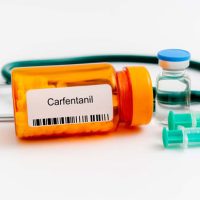Beyond Fentanyl And Narcan: Other Potent Synthetic Opioids And New Treatments For Opioid Reversals

If you have been following news headlines about Florida’s opioid abuse crisis for the past 20 years, the drugs keep getting stronger and scarier, but more reasons for hope keep appearing. After the pill mills shut down, people turned to heroin, and then fentanyl entered the drug supply. Narcan, Good Samaritan laws, and the combination thereof have prevented many overdoses, and suboxone has helped many patients get out of the Florida shuffle and abstain from illegal opioid use long-term. Meanwhile, fentanyl is not the strongest opioid drug recently detected in Florida’s illegal drug supply. Likewise, researchers are currently investigating other medications to prevent opioids from causing overdose, and the effects of these may last longer than naloxone, known by the brand name Narcan, where the effects wear off quickly. Meanwhile, opioids still pose enough danger that judges can still seek harsh sentences for cases involving the possession or sale of these drugs. If you are being accused of a crime that involves fentanyl or another synthetic opioid, contact a Tampa drug crime lawyer.
Carfentanil Is Much Stronger Than Fentanyl, and It May Be Florida’s Scariest Drug
Carfentanil is a very potent synthetic opioid. It is about 100 times as strong as fentanyl, which means that it is about 10,000 times as strong as morphine. Carfentanil was first synthesized in the 1970s, and in the 1980s it became commercially available as an animal tranquilizer known as Wildnil. Wildnil was effective as sedating large wild animals such as elephants, rhinoceroses, or hippopotamuses for medical purposes or so that they could be tagged for research and re-released into the wild. Because of its high potential for abuse by humans, Wildnil was withdrawn from the market in 2003. Today’s carfentanil-containing animal tranquilizers are formulated in a way that makes it much harder to repurpose them for the illegal drug supply.
As for medical use in humans, carfentanil is a Schedule II controlled substance, which means that it is in the same category as fentanyl. Schedule II controlled substances are drugs that are legally approved for at least one medical application, but they have a very high abuse potential. In medicine, carfentanil can be used at very small doses to visualize mu-opioid receptors in the brain during PET scans.
Monoclonal Antibody Treatments May Help Prevent Opioid Overdose
The scientific journal ACS Chemical Neuroscience recently published the results of a study investigating the ability of a monoclonal antibody called C10-S66K to bind to opioids and prevent overdose. The study, which used mice as test subjects, found that the monoclonal antibody prevented injected opioids from having an effect on mice. Clinical trials in humans will begin this month, and if the drug proves effective, it may have the potential to be used prophylactically, meaning that if you take the monoclonal antibody before opioid exposure, it may prevent overdose.
Contact Tampa Criminal Defense Attorney Bryant Scriven
A criminal defense lawyer can help you if you are being accused of illegal possession of fentanyl, carfentanil, or other drugs. Contact Scriven Law in Tampa, Florida to schedule a consultation.
Sources:
neurosciencenews.com/opioid-overdose-antibody-23767/
axios.com/local/tampa-bay/2023/07/31/antibody-treatment-fentanyl-florida-overdoses

